Questions & Answers

- Regarding Research
It is not possible. The themes considered by the instructors are only a general framework. Although we will think together through discussions, basically, students are expected to think by themselves about how to conduct specific experiments and calculations, how to understand data, and how to summarize the results in order to achieve the objectives. This includes re-setting of goals and creation of new themes when things go well or, conversely, when things do not go well.
All of our research themes are the most advanced in the world, so everyone can go to international conferences if they work hard. We encourage students to actively go to international conferences and interact with world-renowned researchers and university students of the same age. Master's students are required to go to at least one international conference. When they go to an international conference, we would like them to deepen their knowledge not only by attending the conference but also by visiting various places (as much as possible). When attending conferences, we have native speakers who have many years of experience correcting the presentations of professional researchers correct their English, record their presentations, and provide thorough training for their presentations. This level of training is rarely seen in other university laboratories.
How do you conduct your research? Some people are more steady than others, some are faster than others, and some are more idea-driven than others. We will help you find the research method that suits you best.
We believe that people who are good at programming will be able to demonstrate their abilities in controlling equipment for experiments and in simulations. On the other hand, we believe that those who are not good at programming can also demonstrate their abilities in experiments. In our laboratory, we cover a wide range of themes, from designing devices (simulation), to actually making things (microfabrication processes), to investigating optical properties (handling of lasers, etc.), so whether you are good at programming or not, you will find something that suits you. The themes range from the development of new technologies to the development of new products (microfabrication processes), to the study of optical properties (handling of lasers, etc.), so whether you are good at programming or not, you will find something suitable for you.
If you want to do research that will lead to a product in two to three years, then our laboratory is not the right fit for you. Of course, there will be times when the derived technology will lead to immediate concrete results, but our main research is in the field of basic research that will be useful to society in the long term, say 10 to 20 years from now. However, if we look at how basic research has influenced society, we can see that it has had a large impact on later society, such as in nuclear power (e.g., Einstein's research) and optical communications (e.g., Townes's laser research). In other words, basic research takes many years, but it is an up-front investment that has a very large impact on society. In this sense, the research we are trying to conduct in our laboratory is research that is useful to society.
It is necessary. We have students learn how to read papers mainly through journal clubs (see Q&A in the Education section). I know many people who were not able to speak English at all when they were assigned to the laboratory, but who are now using English well as researchers or at their companies. If you cannot speak English now, it does not matter if you are motivated. In the past, a master's student who did not speak English well went to the University of California, UC Davis, for six months to do research. The key words for becoming proficient in English are ambition and openness.
If you work diligently on the activities of the laboratory, you will be able to write papers and patents. We will also provide guidance for this purpose. It is said that writing a thesis also affects scholarship and scholarship society repayment exemptions. The environment in Tanabe Laboratory, which allows students to write papers at an early age, also reduces their financial burden.
Research cannot be evaluated by a single scale. Some research may not get the attention it deserves today, but will be rediscovered by future generations, and vice versa. In the past, faculty research has been selected by Scientific American as one of the 50 most important technologies of 2007. It is also true that there are many requests to quantify research on an objective scale, and various methods have been proposed for this purpose. One widely known method is to evaluate the number of times a published paper is cited in other researchers' papers (citation count). This is because papers that attract the attention of other researchers have more chances to be cited, while papers that do not attract the attention of other researchers have fewer citations. If you look at the papers of our laboratory from such a perspective, you will be able to see our strength in numerical terms. I would like to join forces with you to further develop this kind of world-leading research at Keio.
Since our laboratory is engaged in all aspects of design, fabrication, and evaluation, we are equipped with Class 1000 clean room (15m3), semi-clean room, Si etching system, wavelength stabilized laser, optical amplifier, ultra-precision stage, IR camera, crystal growth system, high-performance parallel computer, finite element analysis software, electromagnetic field analysis software, electromagnetic field analysis software, etc. Since you are doing research in a university laboratory, why don't you broaden your skill set by experiencing equipment and software that you would never normally have access to? University faculty members have the job of obtaining research funds. In order to do so, the research being conducted in the laboratory must be attractive, and our laboratory has received research funds from a wide variety of organizations. In other words, we are a laboratory with attractive research contents and abundant research facilities. Of course, energetic and motivated senior students are also waiting for you.
Tanabe Laboratory actively promotes collaborative research. We are actively promoting collaboration within the university and with other research institutes. However, what do you envision when you hear the word "collaborative research"? Do you expect to stay at a company or a national research institute as a trainee and conduct research at the other institute on a permanent basis? There are examples of dispatching trainees to research institutes as interns, but we believe that this is basically for graduate students and above. This is because, although you may find the research itself interesting from the start, it will not be as good as research conducted at a university, where you will develop your basic skills while you are building up your future potential (e.g., improving your academic skills through taking rotating courses, writing papers in English, etc.). Even when we send students out on joint research projects, we give them a thorough education at Yagami before sending them out.
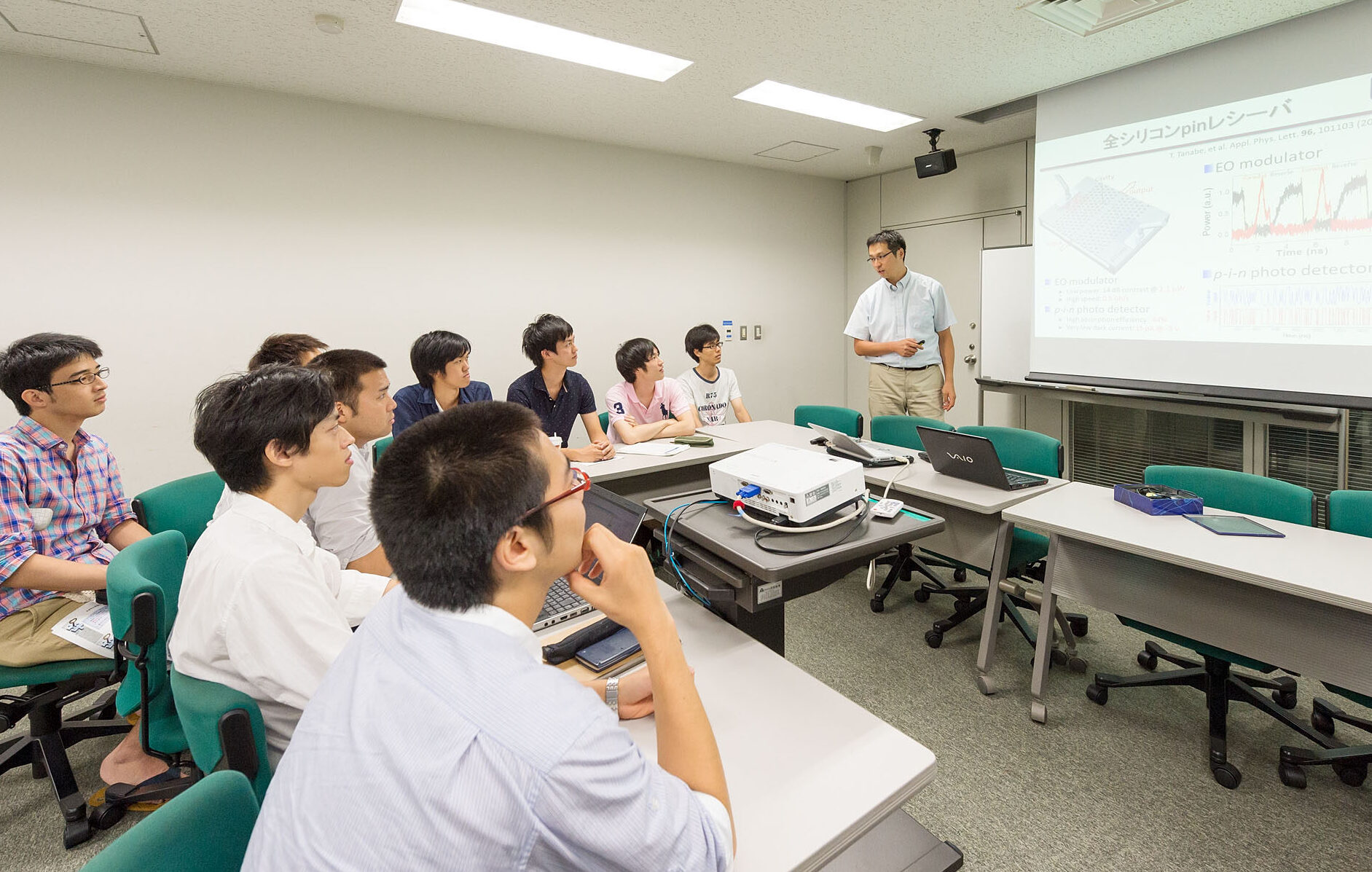
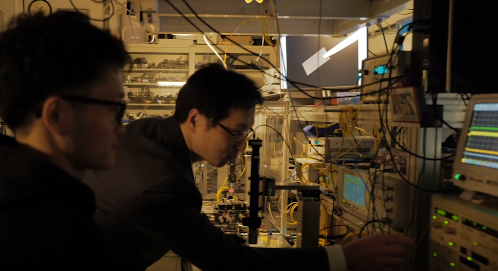
- Regarding Education
Core hours have been completely eliminated from FY2020. However, students are still expected to attend the meetings held during the regular term. The main regular meetings are the Weekly Meeting, which is held once a week to report and discuss the progress of research, and the Monthly Meeting, which is held once a month for the entire laboratory to report on research. The schedule for these meetings is coordinated using Google Calendar. In other words, if you set your schedule in Google Calendar in advance, the meeting time will be set accordingly. The characteristic of Tanabe Laboratory is to create an environment in which it is easy for everyone to participate, while making maximum use of tools such as Google Calendar.
So why do we have Weekly Meetings every week?" You may have thought that we could reduce the frequency. Every day in research is a challenge to the unknown, and it is necessary to repeat trial and error. However, even though it is unknown, the accumulated experience of past research often leads us to the right path. In other words, you can win the competition with the world by frequently obtaining advice from experienced seniors and professors, and fine-tuning the direction of your research as you go.
In addition, by communicating frequently with students, we can detect their problems at an early stage, by regularly exchanging information in research groups, we can share information on the safety of experimental equipment, and by having regular Meetings during the day, we can help you create a rhythm in your life. It is important to have a regular rhythm of life in order to demonstrate continuous strength, and our laboratory supports students in creating a rhythm of life.
The "Rinko-Koza" is a study group to acquire academic knowledge necessary for research. In spring, study sessions are held once or twice a week by reading textbooks (in Japanese) together. Graduate students teach undergraduate students. In other words, this is a round-table lecture for undergraduates, but at the same time, it is intended to be a good review for graduate students by teaching others. For undergraduate students, we plan to develop the ability to actually conduct experiments through programs and practical experiments.
Unlike a class, a lecture is given in a small group. It is not a one-way course. Important points will be taught until they are understood, so there is absolutely no chance that you will drop out. The lectures are not passive classes, and students are expected to prepare well for them.
Tanabe Lab. holds a journal club (introduction of English papers) every week. We ask graduate students to research and introduce topics of the latest papers on a rotating basis. Undergraduate students also participate in this club and study together. You can learn about the latest research topics.
In April, we hold the Spring Colloquium, a camp-style meeting where students present their research plans for the year. Since hazardous chemicals are handled in the experiments, safety education is also provided. There are some things that you may not be aware of. Do you know that liquid nitrogen is a fire hazard? (Reason: Oxygen in the air is cooled to form liquid oxygen on the surface.) In addition, students can acquire skills useful in various industrial situations by taking classes on high-pressure cylinders, clean rooms, etc.
You can acquire a wide range of knowledge in our laboratory, such as LabVIEW, Matlab training, parallel computing programs (C language) running on Linux machines, Python, machine learning, finite element analysis methods, FDTD programs, device control using GPIB, machining techniques such as milling machines and NC lathes, and PIC and electronic circuit design. You can acquire a wide range of knowledge by joining our laboratory.
There are many senior students who are working as researchers or working members of society even if their grades are not so good. There is no need to worry. However, please do not neglect your studies.
There are no non-teaching related chores. Make no mistake, however, such things as communicating with vendors to purchase goods or helping to prepare for the campus research exchange meetings are part of your research activities. In addition, preparing for training camps, supervising undergraduates, teaching junior students, introducing the laboratory to third-year undergraduates, etc., all of you must cooperate with each other in order to demonstrate your abilities as a team and an organization. For example, some laboratories have a policy of not allowing students to be involved in the purchase of supplies, but in our laboratory, students take the initiative in selecting the supplies necessary for their research by negotiating with vendors. The final decision on the selection of supplies (i.e., the settlement of accounts as in a company) is naturally made by the faculty members, who are also responsible for all final decisions. This is because this is a skill that will surely be needed in the future in society. I believe that no matter how good you are in your studies and your research ability is top-notch, unless you want to become a theoretical physicist, you will have problems after joining a company or research organization unless you can negotiate with vendors and explain and persuade your superiors of the rationale for selecting items. One of the reasons why I leave the negotiation with vendors to students is because one of my ideas about the laboratory is that "the laboratory is one of the organizations that connect the university and society, and for students, it is a place where they receive preparatory education for entering society".

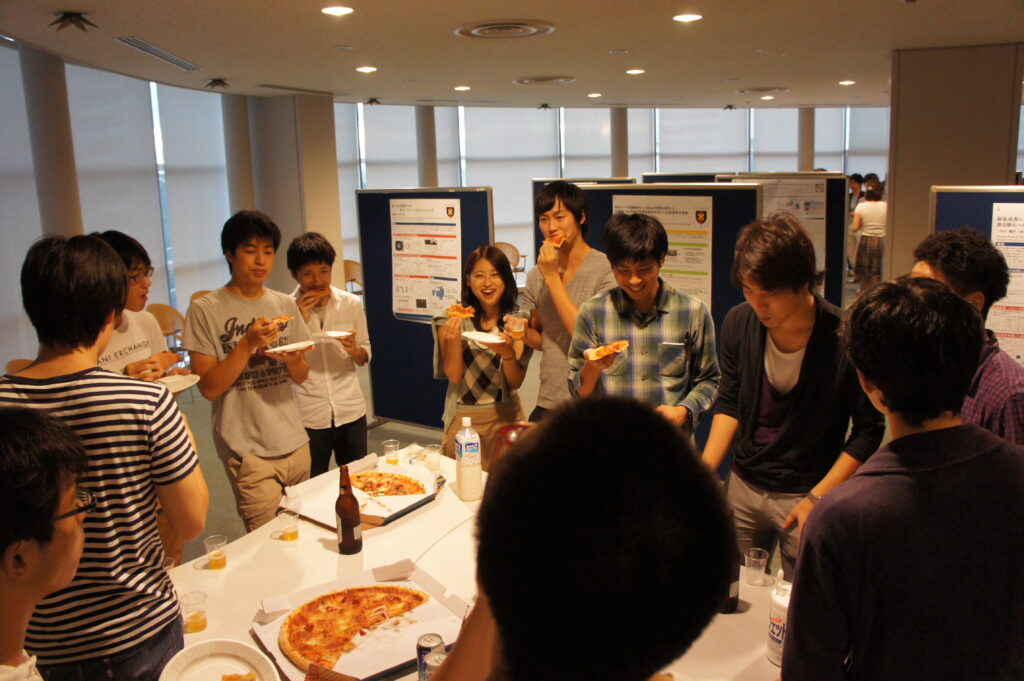
- Other
Choosing a laboratory is a difficult task, and there is no single right answer. It depends on what you are looking for in a laboratory. However, if you examine the educational philosophy of the faculty advisor, the level of research activity, and the fields in which graduates are active, you will be able to determine what you value and the degree to which the laboratory you are interested in matches your expectations. It is also a good idea to gather information about the educational philosophy of your advisor through their website or by talking to them directly. You can gather information about alumni from senior students in the laboratory and from their websites. The most difficult thing to find is information on the level of research activity, but one way is to check the number of papers published every year and the number of international conferences, and if you want to find out more seriously, you can check the number of citations of papers and h-index as mentioned above (in "Q: I want to know the level of research in your laboratory"). You can find out how your laboratory's research is evaluated in the world by checking the number of citations of your papers and h-index. You can also gather information on how much research funding your laboratory has received on the Internet. This reflects information on how your research is evaluated domestically. In any case, the most important thing is to visit the laboratory and talk directly with the supervisor and senior students.
As an event of our laboratory, we hold a colloquium in spring (between March and May) in a camp style. (Last year, it was held jointly with Kannari Lab. This year, it will be held independently because the number of Tanabe Lab. members will increase.) This is a seminar on research, so all students are required to attend. In the colloquium, each student prepares a research theme in advance and presents it. In addition, we are planning to hold a summer camp (around August) and a winter camp (around February) organized by students. The summer and winter camps are for fun. (I would like to experience fishing, rafting, sports, mountain climbing, skiing, hot springs, making traditional crafts and local cuisine, etc.!) ). I think it is very important to have a lot of fun at these camps in order to form a teamwork in the laboratory and to avoid having trouble finding ways to have fun when I become a working adult in the future and start thinking about work-life balance. Another characteristic of the Tanabe Laboratory is that we often interact with other laboratories across departmental boundaries.
Grades are the result of your three years of hard work and should be given a certain weighting. We believe that the wishes of the students, as indicated by their results, should be prioritized, rather than the often difficult-to-evaluate "communication skills" scale. On the other hand, it is also important to have a variety of students in order for the laboratory to become an organization with a wealth of ideas. Not only students with good grades in their studies, but also students with many ideas, students who work hard, students who are good with their hands, students who are good at programs, students who are good at presentations, students who are good at sports, and students who enliven the laboratory, etc., can form a group with diversity for the first time when various types of students gather together. Students who are good at sports, good at programs, good at presentations, good at sports, students who make the laboratory lively, and so on. Therefore, while we do not drop students with particularly outstanding grades, we are willing to select students who have outstanding achievements in areas other than academics (e.g., particularly good communication skills by all accounts, hard work in sports, high computer skills, etc.).
What we require of undergraduate graduates is that they be able to explain the purpose of their research topic in a way that is clearly understandable to the general public. In order to do so, they need to understand not only the details of their own research and experiments, but also the background and social demands of their research. They must also have the ability to present their work effectively. The former is acquired through daily research activities in the laboratory, and the latter is acquired through opportunities to give presentations at lectures and meetings. Both of these skills are acquired through diligent engagement in laboratory activities.
On the other hand, master's degree students are expected to develop the ability to think for themselves and to realize their ideas in addition to the above. The ability to summarize one's own ideas and persuade others, for example, is acquired through the opportunity to propose and present one's own theme at the spring colloquium (training camp).
Our laboratory actively supports students who wish to enter the doctoral program. D. students are expected to have the ability to complete a theme that they have thought up and realized on their own. D. students tend to think of university professors or overseas research institutions as their career path after graduation, but we believe that doctoral students will become increasingly important in the corporate world as well. Especially in the future, it will be difficult for companies to make a profit with traditional business models alone, and they will need to create a new profit structure based on new technologies. This will increase the importance of research and development, and the role of doctors with the ability to create new structures. In particular, we believe that doctoral students in the field of engineering will have more and more opportunities to be active in the world in the future.
D. program, which used to normally take three years, can be shortened to 1.5 years at the earliest for excellent students. We support early completion of the doctoral program. D. students who can fulfill the aforementioned requirements for a doctoral degree in less than three years (of course, the number of theses is important for obtaining a doctoral degree). D. students will also be considered for financial support. All of the doctoral students in the Tanabe Lab have received some kind of financial support so far.
The rooms are kept neat and tidy. OA flooring has been installed, and desks and chairs have been brought in to keep the rooms clean and tidy. Please visit 14-515 to see for yourself.
In principle, there are none. Some laboratories bring comfortable sofas and bedding into students' living rooms, but this will inevitably cause students to linger in their living rooms, which is prohibited in Tanabe Laboratory. From now on, students are expected to work efficiently within a limited time frame, and they must learn how to do so from the time they are students. In our laboratory, we do not consider staying late at night to be a good thing, and we require our students to do their research activities during the daytime with continuity. However, it is also true that there is always a gap between the ideal and the reality, so a balance is necessary. We always pursue the ideal (zero nighttime residency), but in reality, it is possible for students to stay late into the night before their graduation thesis. However, it should be emphasized that this depends largely on the individual's work style.
First of all, as a basic premise, information related to job hunting is not compiled on a laboratory-by-laboratory basis, so there is no problem at all because there are many job openings in our department. In fact, students in both the humanities and sciences are employed by a wide variety of companies and government agencies. Professor Tanabe is well versed in the job market, as he has served as a member of the committee in charge of employment and as an advisor to a headhunting company. In addition to the alumni organizations of our laboratory, there are also alumni organizations of the Kannari, Obara, Terakawa, Takeoka, and Tanabe laboratories, which have many senior alumni, including top executives of large companies, so we are blessed with opportunities to build a network.
D. students are employed in a wide variety of fields, including large corporations, government offices, U.S. companies, and national research institutes. Professor Tanabe actively encourages students to enter the doctoral program. Although there are many reports about the difficulty of finding a job, the market for electrical information is large, so there are many job openings even if you go on to a doctoral course, and you will not have a hard time finding a job.
I often receive this question from third-year students, and in order to keep the situation in order and to avoid giving out incorrect information, I will present Tanabe's basic approach.
First of all, do you really want to study abroad, or do you want to be active internationally and present at international conferences? We would like to clarify what you are looking for.
If you want to present your research at an international conference, we are actively promoting it. We can proudly claim that we send our master's students to international conferences more actively than any other university laboratory in Japan. For example, in May 2022, all four of our second-year master's students attended an international conference in Silicon Valley, even though the corona disaster still discouraged them from traveling abroad. One of them also attended an international conference in the Netherlands three months later. The reason why we present our research at international conferences despite the difficulties is because it is "normal" for Tanabe Lab's research to be presented in international forums.
On the other hand, we do not expect master's students to study abroad (short-termD. students are actively encouraged to study abroad for long periods of time.) Doctoral students are encouraged to study abroad for a long period of time. We also actively support students who wish to enter graduate schools abroad (however, this is their own responsibility, so they must make their own way, and if they cannot do so, they will not be successful at their study abroad destination).
For language study abroad, there are university-supported and privately-funded study abroad programs. Professor Tanabe is a student exchange and overseas training student at the University's International Center.I have been a member of the committee for a long time and have interviewed many students who wish to study abroad. We actively support such study abroad programs as we believe they will deepen your experience, but they are on a different track from the activities of our laboratory.
I consider study abroad in my laboratory to be a win-win situation in which we conduct research overseas for a certain period of time in order to gain a global perspective appropriate for a doctoral student completing a doctoral program at Keio University. In the master's course, students must acquire a solid basic academic foundation and their own skills before they can establish a win-win relationship in terms of research, both for the other research institution and for themselves. However, in practice, there are always exceptions, such as a second-year master's student going to UC Davis for research or a fourth-year undergraduate student going to Freiburg for research.
Yes, you can take time off. We make active use of information technology, and meeting dates and times are not set in a top-down fashion, but rather are adjusted based on the availability of each student using a web scheduler. If you know in advance that you will be absent, you can report it in advance on the scheduler, and there is no problem if you are absent due to travel or other reasons. (Of course, this is all a matter of balance, and only to the extent that overlapping vacations do not delay the progress of research.)


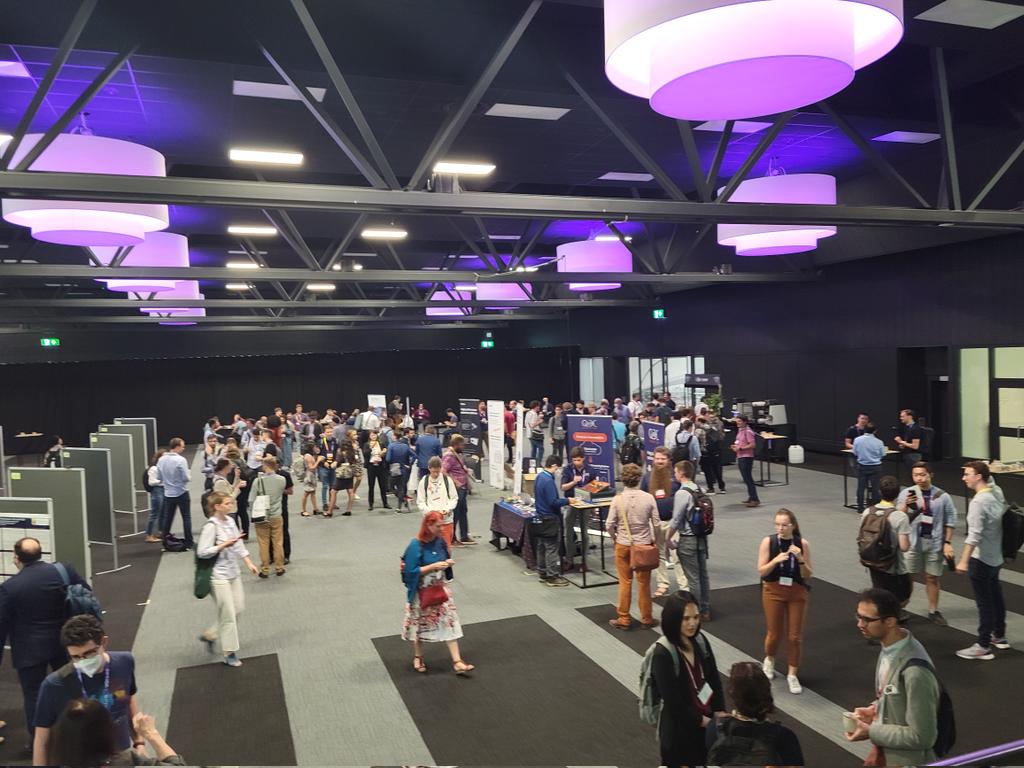
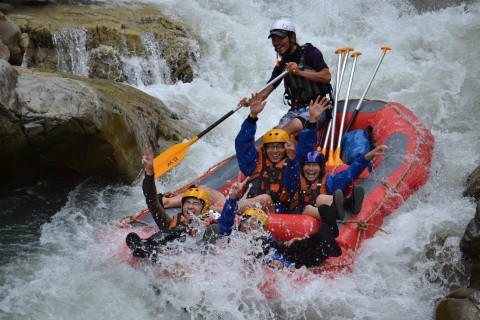
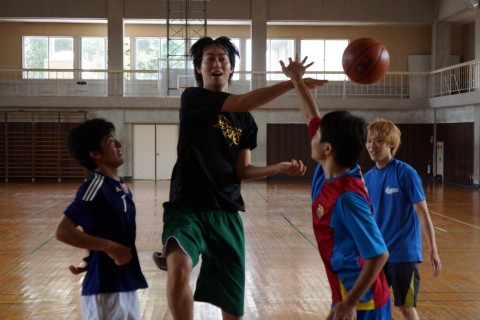
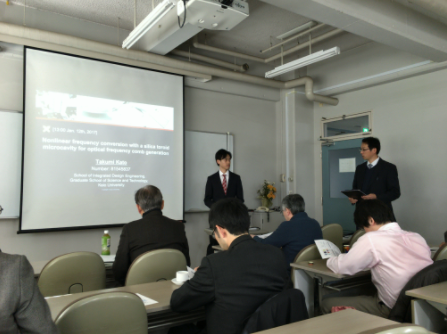
- What is Professor Tanabe's education?
- About Research at Tanabe Lab.
- Must see! Laboratory Introduction Video
- Dig Deeper TANABE Lab.
- You get a good idea of what the lab is like!
- Laboratory Information Session for FY2024 Assignees
We are holding a lab information session for students who will be assigned in 2024. Open Labs are free to come and go as they please. Individual information sessions are also available at any time.
.
- 10/23 (Mon) 16:30- Briefing Session 1 (Location: Bldg. 14, 2F DS43)
- 10/27 (Mon) 18:00- Explanatory Session 2 (Location: Bldg. 14, 2F DR8)
- 11/ 2 (Thu) 16:30- 3rd briefing (Location: 14th Bldg., 2F DR7)
- Laboratory tours and open labs (as needed)
Individual Information Sessions and Lab Tours













